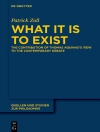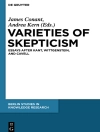Liberal neutrality has two underlying intuitions and therefore two distinct elements. On the one hand it refers to the intuition that there are matters the state has no business getting involved in. On the other hand it is motivated by the idea that the state ought to treat citizens as equals and show equal respect for their different cenceptions of the good life. This book defends this two-fold understanding of neutrality with reference to Rawls’ conception of citizens as free and equal persons. Treating citizens as equals requires the state to grant its citizens equal political rights and also to ensure that these rights have “fair value”. Given the danger that cultural bias undermines the equal standing of citizens, the state has to ensure procedures of political decision making that are able to take citizens’ different conceptions into account.
Despre autor
Alexa Zellentin, Universität Graz, Austria.












